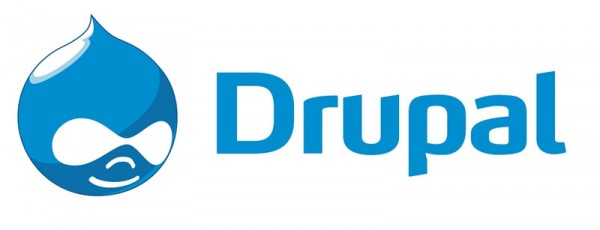Choosing a Content Management System, or CMS, for your new or current website can often be a challenge, due to the fact there are simply so many options out there.
Despite the array of Content Management Systems that exist, it’s not that hard to determine the right CMS for your business. If you’re looking to develop a new website, or redesign your current one, choosing the correct CMS is essential to ensure your business prospers online, and achieves any future goals.
What is a CMS?
A Content Management System, or a CMS for short, is a web-based application consisting of a central interface that allows easy content delivery and authoring. A CMS allows you to manage workflow, and collaborate with your team for creating web or blog content.
Many Content Management Systems allow non-technical users to manage a website, and streamline publishing so you can have a rich array of content on your site with ease. For Content Management purposes, you can write, edit, amend, and add images to your website or blog. For Ecommerce stores, this also means you can upload product content, images, or anything else related to your store.
This means there is no need for expertise in web design or development, with full control over what goes up on your website. So if it’s obvious you need a CMS for your business, which one should you go for?

Why choose a CMS?
When developing or redesigning a website, why should you opt for a CMS? There are a number of reasons, and quite frankly there’s very little reason not to. In general, a CMS allows:
- Creation of Fresh Content
- Customisable Templates
- Plugins and Widgets
- Search Engine Optimisation (SEO) tools
- Widely accessible and updatable
Which CMS should I go for?
What do you want to achieve with your website? If you’re deciding on a CMS, first thing’s first; you need to decide what you wish to achieve.
Content purpose
- Whether its sales, brand awareness, organic reach through SEO, or to get people to read your blog, your CMS can help you on your way.
Technical requirements
- What do you require on a technical level? Something simple? Or something more complex with a separate blog, and an Ecommerce store?
Business requirements
- As far as your business is concerned, your CMS choice should reflect your business needs and requirements at large.
Technical ability
- The technical literacy of the people who will use the CMS on a regular basis should be taken into account when choosing the CMS you will be using going forwards.
Cost
- The cost of a CMS can often be a difficult choice, as there are many free, basic Content Management Systems, but in reality you get what you pay for.
Add-Ons
- These have the ability to extend features, and achieve manage more than the standard version. This can include Ecommerce or Social functionalities.
Security
- What security is included in software? For instance: SSL, authentication protocols, email verification, history logs
Management
- The processes and functionality of content management and site management are worth considering when choosing a CMS for your business.
Support
- The support you can get from the company who provides the CMS is crucial for a long-standing relationship.
Below we’ve taken a look at some of the major contenders within the CMS world, and listed some of the key points which are worth taking note of when choosing a CMS for your business.
WordPress
WordPress is a hugely popular platform, with many websites and blogs alike utilising the CMS. Many people opt for WordPress as it’s simply the most popular, and thus they have heard of it, but it can be limited if you want to do something more complex, or want a highly unique website. So what features does WordPress boast?
- One of the most popular publishing platforms
- At the heart of it, still a blogging tool that’s evolved into a “lightweight” CMS
- Simple and easy to use
- Wealth of plugins
- Security issues – very open to security risks due to open source nature and plugin compatibility
- Limited design options – Often means website is generic and similar to others. How can your business stand out if it’s so similar to others?
- Great for blogs – Simple content management and easy to use text editor
- Add-ons provide extra functionality and capabilities
- Not designed for Ecommerce
- SEO friendly
- Great visual editor
- Reliant on the community without official support
- Great for blogging and content marketing purposes
For more information on our Content Marketing services and how we can get you started, read here.
Kentico
Kentico allows you to easily update web content, with full control over any text, video, graphics, or documents on your website. It addresses any needs of any user, with a lot of functionality available for the price.
Sites that use Kentico include Microsoft, Vodafone, Sony, O2, Mazda, and many more.
- 18,000 websites use Kentico across 90 countries
- Can respond quickly to changes on your competitors’ websites
- Completely SEO friendly
- What You See If What You Get (WYSIWYG) editor
- Workflow and versioning
- Multiple languages
- Widgets
- Authentication and top security
- Content Tree Organisation
- Ecommerce capabilities – Full integration with ordering systems
- Custom workflow tools
- Only takes a small amount of training to use, after which it is a simple process boasting great rewards.
For more information on Kentico, click here.
Drupal
Drupal is a very popular, open-source CMS framework which is used for a reported 2.1% of websites worldwide.
- Easy to get started with
- Open source PHP platform
- Very active community
- Only support coming from community rather than a company
- One size fits all
- Ability to add lots of content
- Not great for Ecommerce stores
- Plugins from many different developers
- No interface to create and publish content – difficult for those non-technical users
Joomla
- Open source PHP CMS
- Flexible and easy with lots of features
- Tools for capabilities whether it’s a site or blog
- Many extensions require purchasing
- Requires money for anything more than basic functionality
- Interface is difficult to use
- SSL protection
- Security add-ons
- Requires understanding of structure and terminology
- No support – only forums and communities
- Limited functionality compared to licensed systems
Umbraco
Umbraco is an open source CMS mainly used for content publishing, with customers including Costa, Heinz, and Peugeot.
- Open source created in .NET
- Lacks tools that licensed platforms provide
- Free to download- but most will require an annual £3k support package
- API allows custom functionality
- No restrictions on page layout
- Suitable for basic projects
EPiServer
EPiServer offers a web content management system and ecommerce software, and is built on Microsoft’s .NET technology. Customers include Kenwood and Electrolux.
- User-friendly and easy to use
- UI and page editor
- Easy to personalise
- Little room for extensions and configuration
- Less features than competitors
- Not suitable for complex websites
- Useful for small, simple websites
Cushy
Cushy CMS brands itself as a “truly simple CMS”, that allows clients to edit content with ease and safety, and no programming knowledge required.
- Limited number of plugins and functionality
- Great option for simplistic website designs
- Easy for non-technical people
- Hosted and free CMS
- Simple to manage
- Unable to create any complex websites
Sitecore
Sitecore was founded in 2001, and offers a web content management system, with customers such as Canon and Zurich. It also offers a social media marketing suite, and customer experience management software.
- Large investment – not suitable for smaller businesses without a big budget
- Lots of functionality with marketing integration
- Requires learning new skills
- Big commitment
As a Web Design and Digital Marketing agency, our choice is Kentico. We are Kentico partners, as we feel it offers the best functionality, customisation, security, and usability available.
WordPress however, makes a great counterpart for the website blog, and so combining these two Content Management Systems creates a great partnership to grow your business. Using Kentico to keep your web content fresh and up to date is easy, and WordPress allows for an easily accessible online publishing platform for content creation which will bring people to your website, and build up your brand.
For the most part, the choice of CMS is down to your capabilities and experience of your web developers or web design agency. It is the developers skills which will make the difference in adapting and implementing a CMS for your website.
For many people, a CMS being open-source and “free” is a huge factor. The fact of the matter is that they are often free for a reason, and will require a lot of money to scale it up to the functionality of a licensed CMS; and will often still fall short. For most CMS platforms, the price for the license actually provides great value, bringing a whole host of functionality that simply isn’t possible with an open source system.
Kentico makes it simple for even the most non-technical users to update your website. Kentico also allows unique designs to work with the CMS, with top functionality and unique customisation to provide exactly what it is you need. This delivers the best user experience possible, and also ensures you achieve your business goals.
If you’re looking at creating a new website, or redeveloping your current one, then get in touch with the team here at Xanthos. We can show you the potential of Kentico, discuss your needs and objectives, and show you how we can help grow your business online.



















